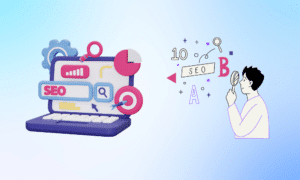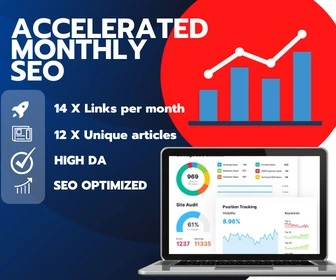If you want to sell physical or digital products online, this is the right place. Many people rush into starting a Shopify store without weighing the pros and cons thoroughly. As your online business grows, the prospect of scaling up while minimizing costs becomes increasingly important. In such cases, turning to WooCommerce as an alternative to Shopify might be a wise decision.
By hosting your WooCommerce site with Sitetrail, not only can you save thousands on Shopify fees, but you also gain access to a plethora of advanced features that empower your e-commerce venture. We will even design your store and provide you with a complete affiliate management system and pay per click management to put you ahead of the game.
The quickest way to get a Woocommerce Store
a) If you are totally new, without a domain name: Simply start with the Sitetrail business name generator to brainstorm and pick your domain name, after which it will guide you to a suitable hosting package that will include Woocommerce & WordPress installation which will save you both time and money.
b) If you have a domain name: You can transfer over to Sitetrail. Visit the Sitetrail web hosting page here and simply choose the business plan that includes all the right Woocommerce features for your needs and we’ll do the rest to get you there.
What is Woocommerce?
WooCommerce, an e-commerce plugin built specifically for WordPress, has become a preferred choice for many business owners looking to avoid the costs associated with Shopify’s monthly fees and sales percentages. This is especially significant as your business scales, with potentially thousands of dollars saved on fees that can be reinvested into other areas of your business. WooCommerce’s compatibility with WordPress offers the flexibility of an open-source platform, empowering users with more control over their online store.
Woocommerce VS Shopify
WooCommerce, a WordPress plugin, offers a plethora of advantages, making it an increasingly attractive alternative. In this comprehensive comparison, we’ll examine the notable shortcomings of Shopify and highlight the compelling benefits of WooCommerce, including its expansive plugin ecosystem and the opportunities it offers for customization, scalability, and cost-effectiveness. Let’s dive into the specifics of what makes WooCommerce an ideal choice for many online merchants and why it may be the superior option for your business.
Shopify Drawbacks
- Limited Customization: Shopify’s closed ecosystem restricts the extent of customization and control over the store.
- Reliance on Apps: Shopify often requires third-party apps for extended functionality, which come with additional costs.
- Transaction Fees: Shopify charges fees on transactions if you do not use their payment gateway, Shopify Payments.
- Monthly Subscription Fees: Shopify’s tier-based subscription model can become costly as your business scales.
- Theme Restrictions: Shopify provides a limited number of free themes, with premium themes often being expensive.
- URL Structure: Shopify’s URL structure isn’t always SEO-friendly, making it harder to achieve top search rankings.
- Migration Challenges: Migrating your store away from Shopify can be a complex process due to its proprietary platform.
WooCommerce Advantages
- Open-Source: WooCommerce’s open-source nature means full customization and control over every aspect of your store.
- WordPress Integration: As a WordPress plugin, WooCommerce benefits from the flexibility and extensive functionality of the world’s most popular CMS.
- Cost-Effective: WooCommerce itself is free; costs arise mainly from hosting, domain, and optional premium plugins.
- Plugin Ecosystem: The extensive plugin ecosystem extends WooCommerce’s capabilities, covering everything from SEO to customer relationship management.
- SEO-Friendly: Integrated with WordPress, WooCommerce benefits from an SEO-friendly structure and a range of SEO plugins.
- Custom Themes: WooCommerce supports a vast array of free and premium themes that can be customized to fit your brand’s unique identity.
- Affiliate Plugins: Plugins like AffiliateWP integrate seamlessly with WooCommerce, enabling robust affiliate marketing campaigns to drive traffic and sales.
- Extensive Payment Gateway Options: WooCommerce supports a wide variety of payment gateways, allowing you to choose the best fit for your business without additional transaction fees.
- Community Support: The large community of developers and users offers support, updates, and innovative solutions for WooCommerce store owners.
- Easy Migration: WooCommerce facilitates easier migration to and from other platforms due to its open-source nature.
By leveraging these advantages, WooCommerce becomes a highly customizable and cost-effective solution for e-commerce businesses. The wide range of plugins available extends its functionality, enabling merchants to tailor their store exactly to their needs.

Clearly, most experts who need stability have tested out Shopify, Godaddy, Wix, Magento and other shopping carts in order to determine that Woocommerce is the clear winner. It is true that Shopify does have it’s advocates in the market. While WooCommerce offers a high degree of customization and control, it may not be the best fit for everyone. For example, maybe you do not mind paying high fees to Shopify?
Shopify shines in its simplicity and ease of use, making it an excellent option for those new to e-commerce. Its all-in-one solution means that hosting, security, and payment processing are all taken care of, eliminating the need for a more hands-on approach to managing these aspects. This user-friendly approach allows business owners to focus on selling products rather than managing the technical side of their online store. So for those looking for a hassle-free and straightforward way to launch an online shop, Shopify’s convenience and comprehensive support can be a significant advantage.
Switching from Shopify to Woocommerce
The decision to switch from Shopify to WooCommerce, however, does not come without its considerations. The success of an online store depends on various factors such as website speed, security, user experience, and search engine optimization. Sitetrail, with its dedicated hosting service for WooCommerce, addresses these needs comprehensively. A number of fairly easy options exist for migrating from Shopify to Woocommerce – and many people are doing it.
By offering 24/7 support, Sitetrail ensures business continuity, crucial for online ventures. The extensive library of 5000+ templates with a Theme Builder allows merchants to create visually appealing storefronts that reflect their brand identity. Additionally, speed optimization is paramount for user experience and customer retention, and Sitetrail’s optimized hosting ensures that your WooCommerce site runs smoothly and efficiently.
Safety is a top priority for e-commerce sites, and Sitetrail’s robust malware and security protection, supplemented by a free SSL certificate, provides peace of mind for both merchants and customers. Tools like CPanel and WHM simplify website and server management, making it easier for business owners to focus on their core operations.
To further boost operational efficiency, Sitetrail provides 1-Click Backup & Restore, Global & U.S. CDN, and a Contact Form & Email List Builder. The SEO dashboard, rank tracker, and weekly reports ensure that your online store remains visible to search engines, maximizing your potential for organic traffic.
Sitetrail provides an A to Z turnkey solution, like professional web design, email automation, ecommerce storefront setup, unlimited press releases, and efficient Google Ads PPC management. These features, coupled with the free domain name, create a seamless, holistic experience for businesses selling both services and tangible goods.
Choosing for the future
In the crowded landscape of e-commerce platforms, WooCommerce stands out as an exceptional choice for businesses of all sizes. While Shopify, Magento, ECWID, PrestaShop, BigCommerce, and Wix Shopping Cart all offer varying degrees of functionality and convenience, they often come with compromises, such as higher costs, restricted customization, or limited scalability. WooCommerce’s integration with WordPress, the world’s most popular CMS, offers unparalleled flexibility and control. Its open-source nature and vast plugin ecosystem allow for extensive customization without imposing a hefty price tag.
WooCommerce’s scalability means it can handle everything from small boutique stores to large-scale online retailers, making it a future-proof choice. In contrast, other platforms may lock you into rigid pricing tiers or force you to migrate as your business grows. By offering the perfect balance between functionality, customization, and cost-effectiveness, WooCommerce emerges as the top choice for businesses seeking a robust and adaptable e-commerce solution.








